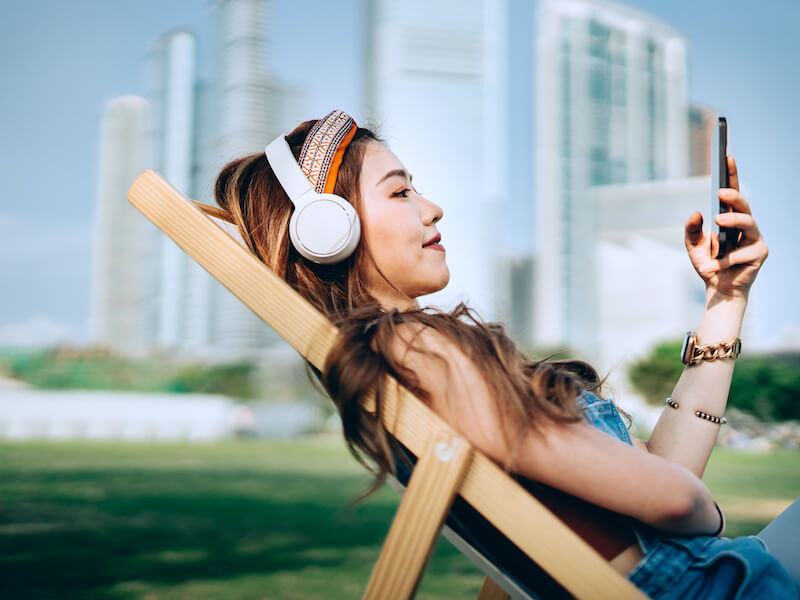
Aiden loves music. While he’s out jogging, he listens to Pandora, while working it’s Spotify, and he has a playlist for all his activities: gaming, gym time, cooking, and everything else. His headphones are pretty much always on, his life a completely soundtracked event. But the exact thing that Aiden loves, the loud, immersive music, could be contributing to lasting damage to his hearing.
There are ways to enjoy music that are safe for your ears and ways that aren’t so safe. But the more hazardous listening choice is often the one most of us choose.
How can listening to music lead to hearing loss?
As time passes, loud noises can lead to degeneration of your hearing abilities. We’re used to thinking of hearing loss as a problem caused by aging, but more and more research indicates that it’s really the accumulation of noise-induced damage that is the issue here and not anything intrinsic to the aging process.
Younger ears that are still growing are, as it turns out, more susceptible to noise-induced damage. And yet, the long-term harm from high volume is more likely to be dismissed by young adults. So there’s an epidemic of younger people with hearing loss thanks, in part, to loud headphone use.
Is there a safe way to listen to music?
It’s obviously dangerous to enjoy music at max volume. But there is a safer way to listen to your tunes, and it normally involves turning the volume down. Here are a couple of general recommendations:
- For adults: No more than 40 hours of weekly listening on a device and keep the volume lower than 80dB.
- For teens and young children: 40 hours is still okay but reduce the volume to 75dB.
About five hours and forty minutes a day will be about forty hours a week. That may seem like a lot, but it can go by rather quickly. But we’re trained to monitor time our whole lives so the majority of us are pretty good at it.
Keeping track of volume is a little less intuitive. Volume isn’t gauged in decibels on most smart devices such as TVs, computers, and smartphones. It’s measured on some arbitrary scale. It could be 1-100. Or it could be 1-10. You may not have a clue how close to max volume you are or even what max volume on your device is.
How can you monitor the volume of your music?
There are some non-intrusive, easy ways to determine just how loud the volume on your music actually is, because it’s not all that easy for us to contemplate exactly what 80dB sounds like. It’s even harder to determine the difference between 80 and 75dB.
So utilizing one of the many noise free monitoring apps is greatly recommended. These apps, widely available for both iPhone and Android devices, will give you real-time readouts on the noises around you. In this way, you can make real-time alterations while monitoring your actual dB level. Or, while listening to music, you can also adjust your configurations in your smartphone which will efficiently tell you that your volume is too high.
As loud as a garbage disposal
Generally, 80 dB is about as noisy as your garbage disposal or your dishwasher. That’s not too loud. Your ears will start to take damage at volumes above this threshold so it’s a significant observation.
So you’ll want to be more mindful of those times at which you’re going beyond that decibel threshold. And limit your exposure if you do listen to music over 80dB. Perhaps listen to your favorite song at full volume instead of the entire album.
Listening to music at a higher volume can and will cause you to have hearing issues over the long term. Hearing loss and tinnitus can be the result. The more you can be conscious of when your ears are going into the danger zone, the more educated your decision-making will be. And safer listening will hopefully be part of those decisions.
Call us if you still have questions about keeping your ears safe.

